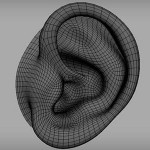Chiropractic and Digestion

The symptoms of abnormal digestion are becoming increasingly more prevalent in our society. Americans spent $13 billion on acid stopping medications in 2006. Nexium, the most popular, brought in $5.1 billion alone – making it the second highest selling drug behind Lipitor. More than 60 million prescriptions for GERD were filled in 2004. Fortunately, there is a growing body of research that shows a connection to your spine and nervous system.
The nervous system controls digestive function from several different regions. The vagus nerve which courses out of the brain stem and runs near the atlas bone innervates all the major organs of digestion and functions to stimulate the digestive process. Other major areas controlling the pace of digestion include the sympathetic nerves coming out of the thoracic & lumbar regions and the sacral parasympathetic nerve fibers. Spinal misalignment in any of these regions can lead to neurological compromise and altered digestive function.
Chiropractors search for the location of such spinal misalignments termed subluxations. A specific chiropractic adjustment realigns the altered regions and restores nerve supply. It is important to not that chiropractic care is NOT a treatment for digestive issues – however – restoring nerve supply to areas that control digestion can have a dramatic effect on a person’s digestive troubles.
Several studies have demonstrated the power of chiropractic adjustments restoring optimal function in individuals with digestive disturbances. In a published case study, a young woman had been afflicted with IBS symptoms once or twice a week for 5 years. After one adjustment she noticed an easing of symptoms and within a short time all her digestive problems disappeared. When the report was published 2 years later she was still symptom free.
Research has also shown that chiropractic care helps infants with digestive disturbances. Researchers chose three infants who were experiencing infrequent bowel movements from once a week to once every 3 or 4 days. Parents of these infants had tried several different laxatives and other procedures recommended by their medical staff. They had also followed specific dietary changes and the use of cod liver oil and mineral oil without any results. The infants began chiropractic care for periods ranging from three weeks to three months. According to the study author Dr. Larry S.Arbeitman, D.C., “All three experienced almost immediate improvement. By the end of the study all three had bowel movements at least once every day.”
Another study published in 2011 showed that in a population of premature infants, spinal adjustments reduced a high occurrence of gastrointestinal symptoms and an excessive length of stay in the NICU. Add to that research done last year at Zhongda Hospital in China found that: “Displacement of intervertebral discs and/or vertebra in the thoracic or lumbar region appears to be a contributing factor in the symptoms of IBS.” and that by correcting the misalignment, IBS symptoms resolved.
From personal experience, one of the most common issues I see with infants in my practice is digestive problems. As we’ve talked about before – the over-diagnosis of reflux in infants leads to needless medication, which is generally ineffective and could have long term implications. In fact, it has been common place in our office to see instances of people (of all ages) who have not had a bowel movement for days experience almost immediate relief after an adjustment. The bottom line is – when dealing with digestion, not only should a change in diet and nutrition be considered, but also the health and the state of the spine and nervous system.











